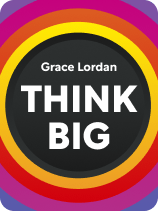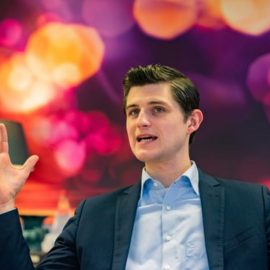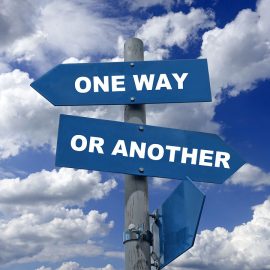

This article is an excerpt from the Shortform book guide to "Think Big" by Grace Lordan. Shortform has the world's best summaries and analyses of books you should be reading.
Like this article? Sign up for a free trial here.
Do you tend to keep doing the same thing without a good reason for it? Which work tasks do you truly enjoy? What skills does your future self have?
In Think Big, behavioral science expert Grace Lordan addresses the fact that many people fail to transform their lives despite a desire to do so. She acknowledges that achieving big goals takes a few years and provides practical advice for making the journey toward your ideal self.
Read more to discover how to figure out who you want to be—the first step on that journey.
Figure Out Who You Want to Be
The first step to changing your life, Lordan argues, is to identify your ideal future self—which Lordan calls your “ME+” and which we’ll call your ideal self. Lordan’s advice on how to figure out who you want to be entails using your imagination.
Picture a typical workday in the life of your ideal self—anywhere between two and 10 years from now. What is their job title and the field in which they work? What kinds of tasks fill up their day? If you’re uncertain about the former, focus on the latter, imagining what work tasks you’d love to do all day. Ideally, these tasks will feel significant—both in your own life and with regard to the impact you have on others—as we tend to try harder to achieve goals that we deem significant.
(Shortform note: In What Color Is Your Parachute?, Richard Nelson Bolles suggests an alternate method for identifying the career you’d like to pursue: Do the “flower exercise,” in which you create a one-page visual summary of your career goals where each petal of a flower represents a different element. The petals are compatibility with people (the kinds of people you like working with), workplace conditions, skills (what tasks you’re good at), purpose, knowledge (what you already know that excites you), money (how much you need to earn), and location (where you want to live). Then, brainstorm what careers might provide you with the elements you want, and talk to people who work in those fields to see if their jobs are a good fit.)
Make sure that the future self you envision reflects your true desires. Lordan cautions against falling victim to the cognitive bias called the ambiguity effect: a tendency to choose the option (goal) where you know the probability of a favorable outcome—even if you’re not as excited about that goal. For example, you’re more likely to apply to law school (which has clear rates of acceptance) than try to become a singer (which has an unclear probability of success) even if it’s your lifelong dream to become a singer. Additionally, avoid the bandwagon effect—the tendency to do whatever the people around you are doing—and reactance bias—the rebellious instinct to stick with something specifically because others don’t like it.
| How to Make Better Choices How can you avoid falling victim to the ambiguity effect, reactance bias, and the bandwagon effect? Some experts suggest that you can limit the power of the ambiguity effect by focusing on the potential positives rather than the negatives of the ambiguous choice. Additionally, since Influence author Robert Cialdini points out that reactance bias is partly a reaction to a perceived loss of control or autonomy, reminding yourself that only you control your choices may help you avoid falling victim to reactance bias. You might also remind yourself that following the bandwagon effect and making choices that reflect not what you want but rather others’ opinions of you may be a recipe for unhappiness. The authors of The Courage to Be Disliked argue that unhappy people believe that the key to unhappiness is to be recognized as “good” by others, and so they make life choices that are meant to earn others’ approval. However, these choices come at a great cost; even if unhappy people successfully earn others’ approval, they ultimately end up living others’ lives because they follow others’ expectations and so sacrifice their own desires. |
Once you’ve identified your ideal self, Lordan contends that you must figure out what skills your ideal self has that you need to develop. Ask yourself: Why am I not currently able to be this ideal self? If you’re unsure, find some people whose jobs are similar to those of your ideal self, and determine what skills they use regularly that you lack. Pick three to five skills that you can reasonably develop: You should be able to develop them by working on them a little bit every week, and developing them shouldn’t cost prohibitive amounts of money.
(Shortform note: In Ultralearning, Scott Young also recommends doing some research before partaking in any major learning project. Start by asking yourself why you want to learn something. If this is a career-related skill, your learning is likely motivated by the desire to achieve some kind of external goal. If so, you should clarify that this skill will actually help you achieve the said goal (like becoming your ideal self), such as by speaking with other people who already have achieved that goal. This helps ensure that you don’t waste unnecessary time or money on skills that won’t help you on your journey.)

———End of Preview———
Like what you just read? Read the rest of the world's best book summary and analysis of Grace Lordan's "Think Big" at Shortform.
Here's what you'll find in our full Think Big summary:
- Why most of our attempts to transform our lives fail
- How to overcome the cognitive biases that hold us back from our goals
- How to take the necessary small steps to change your life long term






